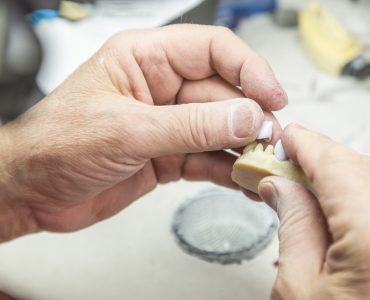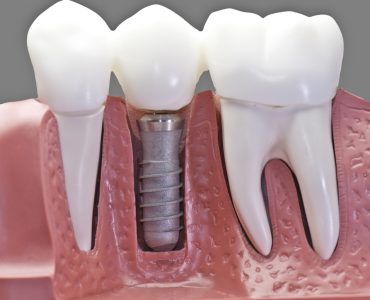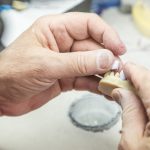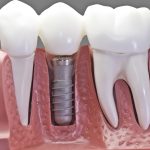In the last two decades, dental implants have raised all of our expectations when it comes to what’s possible. They look natural, work well in the mouth and make you feel good about your appearance. A new set of healthy looking teeth can help you to regain your confidence, as well as your smile. However, as the average price of dental implants is especially high, you may wonder what you’ll be paying for. Here’s a look at where your money goes and the different costs involved in your care.
A dentist needs to pay his or her own wages, so whether you choose to go out of state, or have local dental implants, part of your invoice will refer to the time they have spent on your case. Even when they are not with you, a dentist is at work behind the scenes analyzing your x-rays, assessing the state of your jaw and preparing for what needs to be done. The final cost may be influenced by the work a dentist needs to do in order to fit the new tooth correctly. It could be placed awkwardly for example, or another tooth may have to be extracted beforehand.
As part of this process, they will liaise with their team of technicians to make sure everyone knows how the implants will be fitted when you arrive. Each assistant will have prepared for their role by attending training courses and examinations, these can be expensive and your bill will help to fund them.
The materials used are highly specialized and the craftsmanship which goes into each tooth is not cheap. The implant is precision engineered to measurements in fractions of a millimeter, while on top of this, sits a crown that must look realistic. These products are created by a dental technician who may have had years of training in order to get each individual tooth just right. Even affordable dental implants are produced by experts, so the price you pay takes into account the time, effort and skill they invested in your new teeth.
From single teeth to full mouth dental implants, each insert is custom made for your mouth only and could never fit another person. Therefore, the number of teeth you need to restore will have an impact on your bill, more teeth mean more work for the dentist and his team.
After your main treatment has been completed, you will need to return to the surgery for follow-up visits or after-care to ensure the implant is settling in properly. It is integrated with your jaw bone, so unlike fillings or caps, when a dentist has fitted implants, they need to check the bone is still healthy and that the area is healing well.
When you choose to have implants, you will also be paying for the quality materials used in their construction. They have to be extremely robust, capable of withstanding the odd knock or bump, but also strong enough to remain in place 24 hours a day and maintain their pristine appearance. The feel of your new teeth is as close to the real thing as it is possible to get at the moment and despite being false, they will not change how you speak or eat. The best dental implants may still seem expensive, but you are paying to enjoy strong healthy teeth once more.













